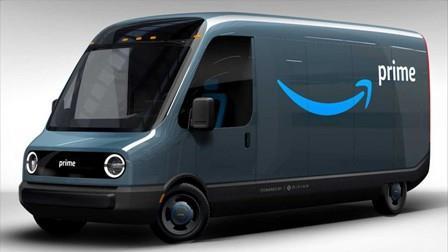
The fleet of electric commercial vehicles on British roads will jump by hundreds and perhaps thousands in the next two to five years as some of the biggest logistics companies put their faith in battery power, especially in the cities, in the wake of rapid improvements in range and payload, writes Selwyn Parker.
DHL Express led a spate of electric vehicle (EV) orders in September with the addition of 10 Renault ZE Masters as the first step in a plan to add 400 EVs to its UK fleet by 2025. That’s at a rate of about 80 a year.
With a range of 75 miles and a payload capacity of about 10cu m, the ZE now provides a “practical alternative to traditional fuelled vehicles,” says DHL Express fleet director Richard Crook. “We can now deploy these more sustainable vehicles as part of our fleet and be confident in their ability to meet operational requirements.” Previously, he added, it was issues over range and load capacity that limited the viability of e-vans in commercial fleets.
DHL Express does not plan to confine its EV fleet to the urban environment. “As electric vehicle innovation continues and the range a vehicle can cover on a single charge grows, we plan to expand the electric fleet outside of city locations,” Crook says.

Currently, DHL Express’s fleet comprises 1,300 diesel vans and the EVs are part of a long-term replacement strategy. “Our current commitment to replace 400 of our diesel vans with electric vehicles is the minimum we expect to achieve by 2025,” a spokesperson says. “As [electric] technology and infrastructure continue to develop, we will continually review our target. This is just one step towards our Mission 2050 target of zero logistics-related emissions.”
In another statement of intent made in September, Amazon announced plans on an even bigger scale as chief executive Jeff Bezos ordered a big step towards a company to be run on 100% renewable electricity. Amazon has committed to the purchase of 100,000 EVs to be delivered between now and 2030. The first 10,000 will be on the road by 2022, with an unspecified number destined for Britain.
The supplier will be Michigan, USA-based manufacturer Rivian (pictured), which was founded 10 years ago by chief executive Robert ‘RJ’ Scaringe, rather than an established OEM. Amazon has a $700m (£560m) stake in Rivian, which has not yet sold a single EV, but plans to launch electric pick-ups and SUVs in America in 2020. According to test reports, they could rival Tesla in performance and space. The first models will feature 180kWh battery packs, almost twice the size of Tesla’s largest power unit and enough to drive the vehicles up to 400 miles.
The Rivian is based around a “skateboard” platform engineered by Mark Vinnels, the designer of the MP4-12C supercar who was poached from the McLaren Group. The platform allows for plenty of space -- the load bed is 1,400mm long and up to 1,385mm wide.
“We’re beating Tesla and the big three to market,” says Scaringe.
However at least two of the big three may not be far behind. Ford, which earlier invested $500m in Rivian, announced in September that it is developing an electric pick-up of its own while General Motors’ GMC brand has said it is considering a similar move as the group embarks on what chief executive Mary Barra describes as a “path to an all-electric future”

Meanwhile, the UK’s largest doorstep delivery service, Milk & More, is adding 159 more EVs to its 500-strong electric fleet, claimed to be the largest in the country.
The LDV EV80 vehicles will be recharged by Alfen EVE Dual Smart chargers supplied by Elmtronics.
With a range of 120 miles, Milk & More’s electric fleet will travel over 1,000 miles a year, saving 3.4 million litres of diesel annually, the group says. One of the attractions of EVs is their quietness. “Noise reduction is a key customer benefit because many of the milk men and women deliver to customers homes by 7am,” Milk & More explains.
The latest round of orders is also a vote of confidence in the supporting charging technology. Elmtronic’s chargers will for example be connected to the Hubsta network linking over 55,000 charge points worldwide. The latest dual unit is cheaper to install than two single units, Elmtronics says.
These orders for EVs are part of a growing drive to cut carbon emissions, partly driven by legislation and partly because going green now makes business sense. Amazon CEO Bezos says the EV order was part of a plan to beat the target set by the Paris Agreement 10 years ahead of schedule while DHL Express has set itself a target of zero emissions in deliveries by 2050.













